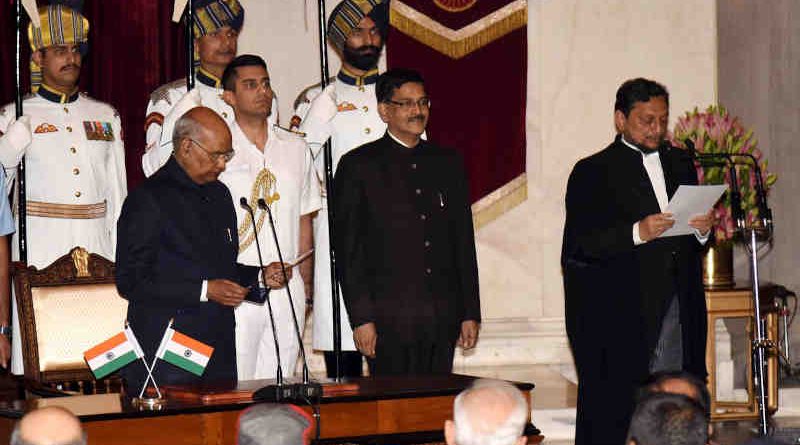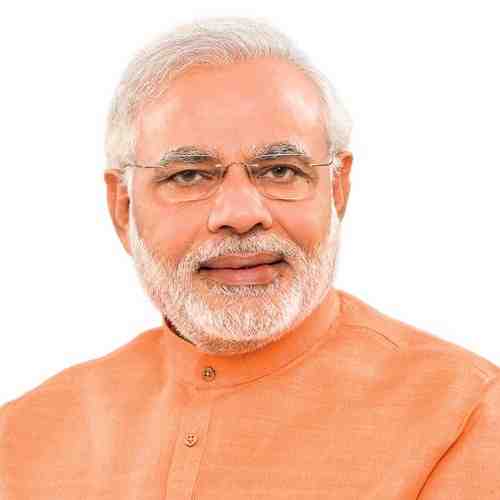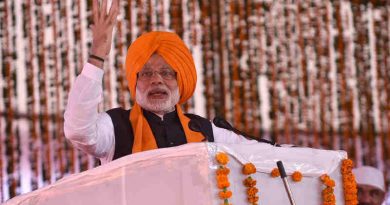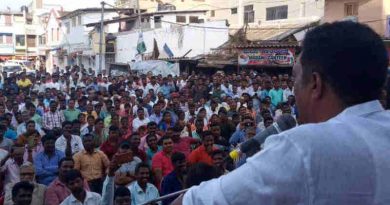Supreme Court of Modi Govt Refuses to Stay Citizenship Act

People argue that it should work as the Supreme Court of India instead of becoming the Supreme Court of Modi government.
By Rakesh Raman
The Supreme Court of India today refused to grant stay on the Citizenship (Amendment) Act (CAA), which has triggered nationwide protests that demand the repeal of CAA and the related laws about National Population Register (NPR) and National Register of Citizens (NRC).
The top court – which largely works under the government – gave the Centre four weeks to respond to petitions on the CAA law, saying that it would not order stay without hearing the government.
While restraining all the High Courts from hearing petitions on the CAA, the Supreme Court said a five-judge constitution bench will give an interim order on nearly 140 petitions filed to stop the controversial law.
A bench headed by Chief Justice of India (CJI) Sharad Arvind Bobde is dealing with 143 petitions that mostly challenge the validity of CAA. Attorney General KK Venugopal, appearing for the government, asked for more time to respond to all the petitions.
The Supreme Court rejected the plea of Congress leader and lawyer Kapil Sibal who had urged the court to put on hold the CAA and postpone the implementation of NPR.
Keeping in view the widespread protests and state-sponsored violence, the Supreme Court could have easily expedited its decision-making process. However, it delayed the proceedings deliberately because the delay suits the government.
The protesters in India believe that the new citizenship laws announced by PM Narendra Modi and his Home Minister Amit Shah are discriminatory and aim to target the Muslim community.
The Supreme Court was expected to protect the constitutional rights of people. However, once again, the court judges – who cannot dare to work against the authoritarian Modi regime – gave a weak judgment that favored the government’s decision.
In a related case of protests, the Supreme Court delivered a vague order on January 10, 2020, to direct the Modi government to review its restrictions on the use of Internet and the assembly of people. But the court could not order the Modi government to lift the draconian restrictions.
ROLE OF SUPREME COURT
People argue that it should work as the Supreme Court of India instead of becoming the Supreme Court of Modi government. “When the history of today’s times is written, where we are witnessing the gravest assault on our Constitution, democracy, rights, culture, and civilization (more serious than even Emergency), the Supreme Court will stand out as an institution which collapsed and allowed it to happen,” said Prashant Bhushan, a public interest lawyer and activist.
When the history of today’s times is written, where we are witnessing the gravest assault on our Constitution, Democracy, Rights, culture & Civilization (more serious than even Emergency) the Supreme Court will stand out as an Institution which collapsed & allowed it to happen.
— Prashant Bhushan (@pbhushan1) January 21, 2020
Therefore, Bobde should perform his own duties diligently as a judge, and he should also work hard to restore the lost reputation of the top court.
Bobde’s predecessors – Ranjan Gogoi and Dipak Misra – who were largely working as government spokespersons – have completely tarnished the image of the court which has been reduced to the level of a party office of Bharatiya Janata Party (BJP) headed by PM Modi.
As judges, both Gogoi and Misra were pronouncing judgments to meet Modi’s expectations. In all autocratic regimes that work under the garb of democratic systems, the rulers silently use courts to impose their own decisions on citizens and suppress all kinds of dissent.
That’s what Modi has been doing by virtually holding Chief Justices Gogoi and Misra to ransom. Throughout his tenure, Gogoi was made to grapple with his own sexual harassment case filed by a woman employee.
Justice Markandey Katju – a former Judge of the Supreme Court of India and former Chairman of Press Council of India – said, “At last the woman employee who was sexually molested by CJI Gogoi and victimized along with her family has been reinstated. There was no vice which was not in Ranjan Gogoi. And yet this rascal and rogue rose to become CJI. It speaks volumes about our judiciary.”
At last the woman employee who was sexually molested by CJI Gogoi and victimized along with her family has been reinstated.
There was no vice which was not in Ranjan Gogoi. And yet this rascal and rogue rose to become CJI. It speaks volumes about our judiciary.
— Markandey Katju (@mkatju) January 22, 2020
And Misra was facing multiple charges from abuse of office to impropriety. In fact, in 2018, 64 Rajya Sabha MPs of different political parties had submitted an impeachment motion against Misra on 5 charges of misconduct.
Obviously, in order to save their reputations and jobs, both these beleaguered judges preferred to succumb under surreptitiously given government diktats instead of protecting the dignity of the court. They often delivered wrong or vague judgments just to please Modi and his government.
DUBIOUS JUDGMENTS
Now the onus is entirely on Chief Justice Bobde to save the Supreme Court’s sanctity by bringing some order to the chaos. He should begin by opening some of the crucial cases to deliver justice which should be clearly visible to all the stakeholders.
These cases include the Rafale corruption case in which Modi is the prime accused. Although there is sufficient prima facie evidence to start a formal inquiry into this case, the Supreme Court under Gogoi did not order the CBI inquiry.
In another case, Sanjiv Bhatt, a police officer who blamed Modi for Gujarat riots of 2002, has been sentenced to life imprisonment in an unrelated 30-year-old custodial death case. Bhatt, a former Indian Police Service (IPS) officer from Gujarat, had filed an affidavit in the Supreme Court against the then chief minister of Gujarat Narendra Modi (who is now the PM of India), alleging that the riots were committed at Modi’s behest.
As the courts and top judges are completely controlled by the government, earlier a few judges had protested openly against the shady working of the Supreme Court of India. They were particularly concerned about the mysterious death of CBI court judge B. H. Loya, who was handling the Sohrabuddin Shah encounter case in which BJP president Amit Shah was the main accused.
Instead of holding a fair trial, a Supreme Court order stated that no further investigation is needed into the death of judge Loya. It is largely believed that the Modi government had influenced the court to get Amit Shah off the hook.
Currently, Kashmir is also facing extreme human rights violations being committed by the Indian security forces, as the Modi government has abrogated Article 370 which gave special privileges to the people of Jammu & Kashmir (J&K). But the Supreme Court has failed to save the rights of Kashmiris.
Now it appears that the Supreme Court has become a personal property of the Modi government. Instead of protecting the fundamental rights of people, the top court – along with other courts in India – is working in connivance with the despotic Modi regime to forcefully quell all sorts of dissent.
As courts have lost their credibility, the judgement in the CAA case is only a precursor of the dreadful future that is coming for the people of India.
This article will also be published in the Legal Directions newsletter that covers Indian and international legal affairs.
By Rakesh Raman, who is a national award-winning journalist and social activist. He is the founder of a humanitarian organization RMN Foundation which is working in diverse areas to help the disadvantaged and distressed people in the society. He also creates and publishes a number of digital publications and research reports on different subjects.




